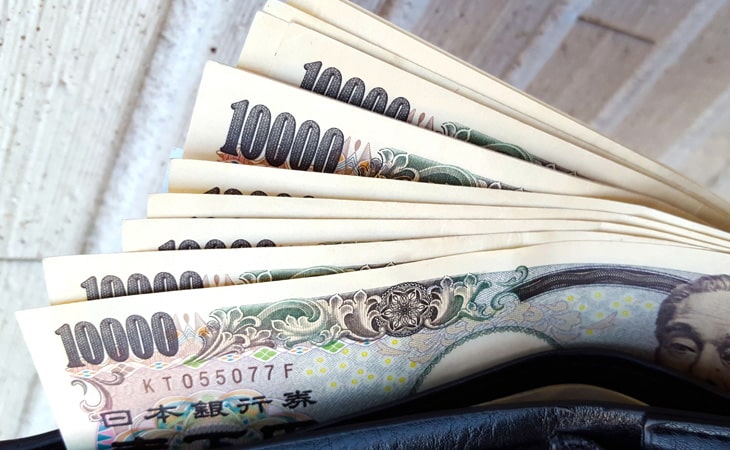What is the 20 Million Yen Problem?
The ‘20 million yen problem’ for retirement funds is a warning presented by the Japanese government in 2019, namely ex-Finance Minister Taro Aso. The problem highlights the lack of adequate funds for retirees in Japan, asserting that families would need to save at least Y20 million in addition to their national pensions to live adequately during retirement. The ‘20 million yen problem’ has become a catalyst for working people to invest in financial markets in Japan and overseas.

The main reasons for the lack of adequate funds in Japan are:
- lack of high-return retirement plans historically
- an aging population
- 0% interest on cash in the banks (negative real interest rates)
- Reduction in lifetime employment at large corporates
Japan has had a tough time with equity investments over the past 30 years, suffering two lost decades since the economic bubble burst in 1989. Hence, Japanese nationals are generally hesitant to invest their hard-earned cash into the equity markets despite the relatively decent performance from 2009-2021.
Furthermore, Japan has the oldest population in the world, with a third of its populace at or over the age of 60. This trend is not projected to falter anytime soon, as estimates suggest that up to 42 percent of Japan’s population will be 60 years old or older by 2050. Japan’s demographic troubles have decreased the size of its labor force and strained its vital factors of production, contributing to the drop in national productivity. These factors increase the time a retiree must fund their golden years, particularly for women. According to the Ministry of Health, Labor and Welfare, the average life expectancy in Japan reached record highs for both women and men in 2020, at 88 years and 82 years, respectively.

To make matters worse, the already conservative mindset of the Japanese has discouraged them from putting cash into the stock market. Hence, the money sits in the bank at zero percent interest. As a result, the net return on cash is negative after factoring in inflation, now over 2% in Japan.
Finally, large corporations in Japan are downsizing either by early retirement packages or general attrition. This makes it more difficult for salaried workers to maintain their comfortable corporate pension schemes in to their retirement years.
To put it simplistically, according to 2019 calculations, the average salaried worker has a shortfall of roughly 20 million yen or more for his retirement years from age 60-85. This shortfall is even more pronounced for healthy seniors that live into their 90s. These reports and studies were released in 2019, well before the recent inflation concerns skyrocketed in Japan and overseas.
With inflation accelerating worldwide, including in Japan, the cost of retirement must be higher; thus, the ‘20 million yen problem’ should be even more acute.
What can you do about it as a Japan resident?
This underfunding problem goes for everyone in Japan, including foreigners, since everyone is exposed to the four above-mentioned structural issues. In addition, foreigners in Japan have also been reluctant to invest their cash and suffer from zero interest rates in Japan and foreign bank accounts.
For expats in Japan, the shortfall is likely many times larger than just 20 million. This is because, as an expat, you are less likely to qualify for full pension benefits from any country, including Japan. So the burden of preparing for retirement is more heavily weighted on the individual.
In addition, we should remember that the ’20 Million JYP problem’ is about maintaining a basic income. So for those that would like to keep a comfortable standard of living even after retirement, 20 Million JPY is unlikely to do much.

How can you make up the shortfall?
Compensating for this retirement shortfall is simple: increase your ownership of assets, such as stocks, mutual funds, businesses, and real estate. Owning assets is the best way to fight inflation and grow your wealth in preparation for retirement. Historically, the global stock market offers the most comprehensive and attractive opportunities.
The most potent tool you will have at your disposal to help you achieve these large targets is compound growth, so the sooner you start, the better.
The first step is to understand how big your shortfall may be. You can use our retirement calculator to get an idea of how much you should save by the time you retire. We’ve included the calculator below for your convenience.
Retirement Saving Calculator
Current projected savings
Retirement savings needed
This is the total amount you should be contributing each month including your current monthly contribution.
Ready to talk about your retirement?
Book a free consultation with us today
You can also book a free financial consultation with one of our advisors for a more comprehensive approach. We can help you determine how much you will likely need, what options you have available, and formulate a strategy to make it happen.
Argentum is Japan’s premier licensed financial planning firm serving the expat community. We advise on portable and tax-efficient private retirement plans designed for the modern mobile workforce. We’d be happy to help you get started on a fulfilling financial future.
Argentum Wealth does not provide tax, legal or accounting advice. This material has been prepared for informational purposes only, and is not intended to provide, and should not be relied on for, tax, legal or accounting advice. You should consult your own tax, legal and accounting advisors before engaging in any transaction.
Argentum Wealth Management is licensed through the Japanese Financial Services Authority to give financial advice. The FSA strongly recommends that you only receive financial advice and services from a locally licensed and regulated firm.



